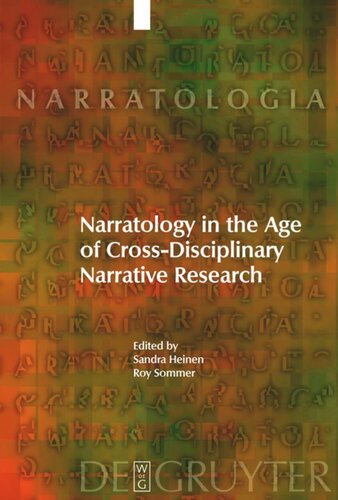

Most ebook files are in PDF format, so you can easily read them using various software such as Foxit Reader or directly on the Google Chrome browser.
Some ebook files are released by publishers in other formats such as .awz, .mobi, .epub, .fb2, etc. You may need to install specific software to read these formats on mobile/PC, such as Calibre.
Please read the tutorial at this link: https://ebookbell.com/faq
We offer FREE conversion to the popular formats you request; however, this may take some time. Therefore, right after payment, please email us, and we will try to provide the service as quickly as possible.
For some exceptional file formats or broken links (if any), please refrain from opening any disputes. Instead, email us first, and we will try to assist within a maximum of 6 hours.
EbookBell Team

4.3
88 reviewsNarrative Research, once the domain of structuralist literary theory, has over the last 15 years developed into an international and interdisciplinary field. It is now commonly agreed that storytelling functions as a fundamental cognitive tool for sense-making and meaning production, and that human beings structure and communicate lived experience through oral, written and visual stories. Entitled Narratology in the Age of Cross-Disciplinary Narrative Research, this volume collects fifteen essays which look at narrative and narrativity from various perspectives, including literary studies and hermeneutics, cognitive theory and creativity research, metaphor studies, film theory and intermediality, as well as memory studies, musicology, theology and psychology. The topics touch on a wide range of issues, such as the current state of narratology and its potential for development, narrativity in visual and auditive art forms, the cultural functions of narrative, and the role of narrative concepts across the disciplines. The volume introduces interested newcomers to the ongoing debate, reflecting the diversity of research questions and methodological approaches involved. It takes a critical, yet cautiously optimistic stance with regard to the potential for interdisciplinary collaboration between narrative researchers, and invites experienced readers from any discipline interested in narrative to join this important debate, which promotes the exchange of ideas, concepts and methods between the humanities and the social sciences.